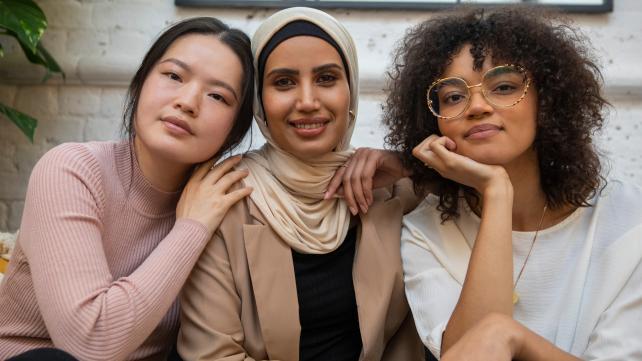
Every year on the first Tuesday in the month of August, Americans gather for the National Night Out. The goal of National Night Out is to connect common concerns between everyday citizens and their neighbors and strengthen relations with local law enforcement. It is traditionally observed with citizens that live near each other coming together in a social environment and discussing the shared objective of creating or keeping a safe neighborhood.
National Night Out is a demonstration of how the efforts of one person can be impactful and substantial. Over fifty years ago, back in 1970 a young man simply identified even today as just “Matt” was a volunteer patrolman in his Philadelphia neighborhood. He began a newsletter to share with other communities the success he and his organization’s efforts were having with establishing community connectedness. In doing so, he noted that the civic groups and neighborhood watch initiatives nearby were all doing similar work, but they were working independently. Matt surmised that all of these separate groups would have more impact and be more far reaching if they shared a common purpose and platform.
These efforts eventually morphed in the ensuing decade into the National Association of Town Watch whose purpose was to get neighbors to look after and protect each other by staying alert, informed and involved with what was happening in their neighborhood. Those in the association would invite law enforcement representatives who would share safety tips and inform the public of at-risk behavior to watch out for and the latest trends. This particular effort began to grow nationwide.
Finally, in August of 1984, the first National Night Out was held in America with 23 states participating and 2.5 million neighbors across 400 communities coming together. These events introduced neighbors to each other and actually became a time of late summer celebration. Today the activities of National Night Out are unique to the neighborhood, but often include cook-outs, free food, parades, block parties and speeches reminiscent of 19th century July 4th activities (without the fireworks!). Each ‘neighborhood’ decides the boundaries of their neighbors and citizens within the neighborhood work along with local law enforcement and sometimes civic and government groups to plan and/or fund the event.
In America’s middle-class neighborhoods, National Night Out was a welcome return of the neighborliness. In ethnic minority neighborhoods, citizens and law enforcement communicated about negative behaviors endured by both sides. In some instances, the local law enforcement agencies would organize the activities in an attempt to gain the confidence of citizens they served. These efforts are often rebuffed because of the systemic disparities of policing in marginalized neighborhoods. The sharing of a grilled hamburger and ice cream is just not enough to instill actual trust. A 2014 Gallup poll revealed that 59 percent of white adults felt confident about their local law enforcement as opposed to only 37 percent of African American adults.
Therefore, neighborhoods with autonomous National Night Out events tend to be more middle class in nature for both white and African American communities. However, the mission and goals of this initiative are particularly beneficial for marginalized communities to take back control of their street and hold local law enforcement agencies accountable for their behavior.
Bridging the gap between community experience and trust during National Night Out for marginalized communities has traditionally been organized by civic and or religious institutions in the particular neighborhood.
For the Muslim community, especially those in the inner-city, these National Night Out initiatives have often been sponsored by the area mosque in conjunction with neighbors which serves as initiating the dialogue between neighbors and law enforcement about keeping each other safe, with the added benefit of offering Dawah to neighbors near the local mosque. In addition, these actions keep within the Islamic institution of protecting and honoring our neighbors as was the tradition of Prophet Muhammad (SAW).
Anas ibn Malik reported: The Messenger of Allah, peace and blessings be upon him, said, “The believer is one who is trusted by people. The Muslim is one from whose tongue and hand Muslims are safe. The emigrant is one who emigrates away from evil. By the one in whose hand is my soul, a servant will not enter Paradise if his neighbor is not secure from his harm.”
Source: Ṣaḥīḥ Ibn Ḥibbān 515
Kulthum al-Khuza’i reported: A man came to the Prophet, peace and blessings be upon him, and he said, “O Messenger of Allah, how may I know if I have done right or wrong?” The Prophet said, “If your neighbors say have you done well, you have done well. If they say you have done badly, you have done badly.”
Source: Sunan Ibn Mājah 4222
Individual Muslims have the same power as “Matt” to make a difference in their neighborhood. A 2020 Pew Research survey found that many Americans have an unfavorable view of Muslims and “53% say they don’t personally know anyone who is Muslim, and a similar share (52%) say they know “not much” or “nothing at all” about Islam.”
These statistics identify the need for Muslims to reach out and be known in their neighborhood. Chances are high that many Muslims live in or near neighborhoods or have a mosque/Islamic center near a neighborhood that plans National Night Out activities. Our neighbors need to know that we all share common concerns. Our neighbors need to know that we care about their safety. Our local law enforcement needs to know our expectations of them and how we will hold them accountable. We all can make a difference in bridging gaps of information about Muslims in our respective communities, while upholding the Islamic obligations we have with our neighbors.



Add new comment